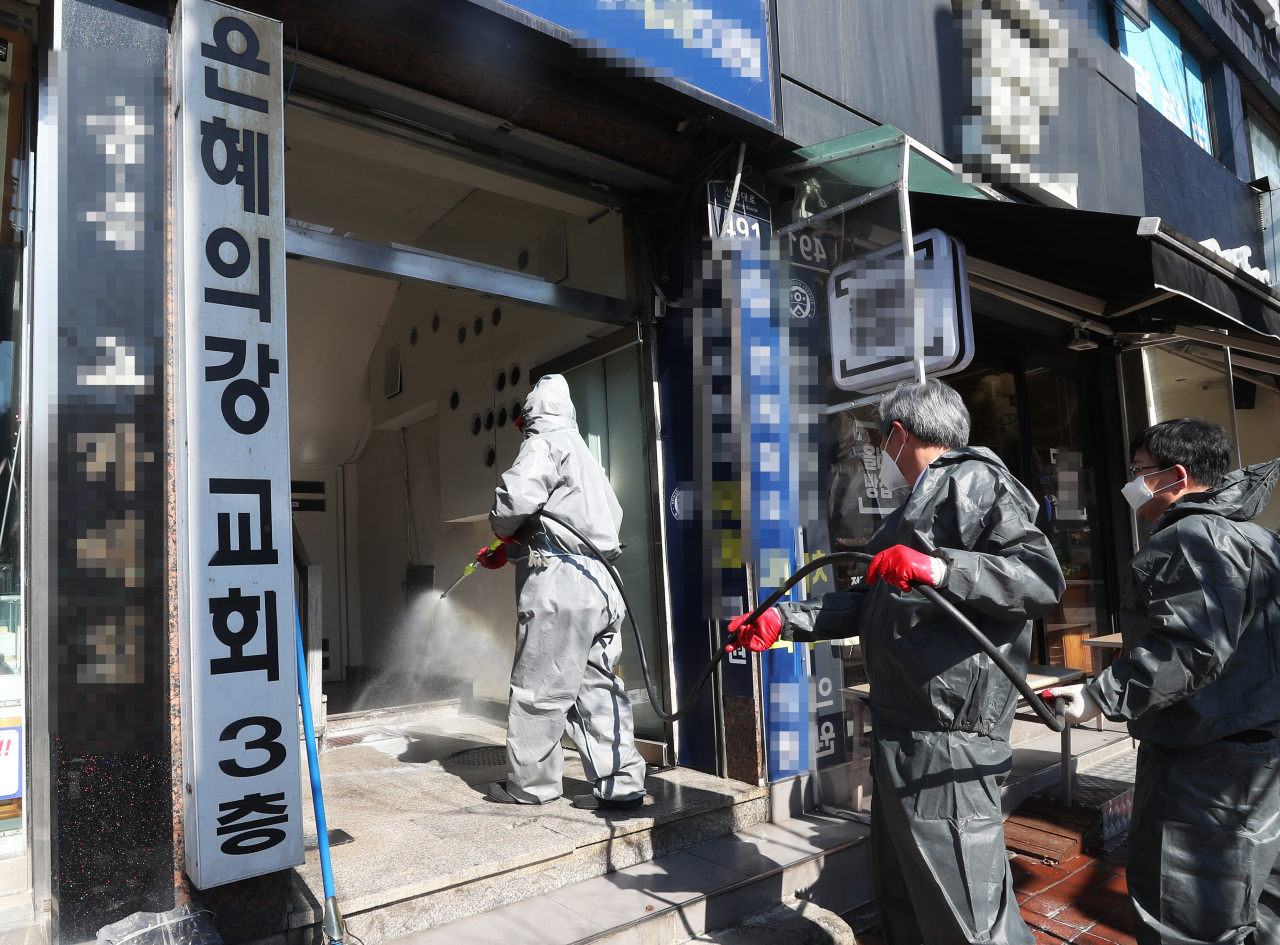Cluster infections, incoming travelers threaten capital area
By YonhapPublished : March 17, 2020 - 11:47

South Korea reported fewer than 100 new coronavirus cases for a third straight day on Tuesday, but concerns lingered in the metropolitan area as group transmission and imported cases emerged as new risks in the anti-virus fight.
Gyeonggi Province, which surrounds Seoul, reported a sharp increase of 31 cases, which brought the total in the province to 262, according to the Korea Centers for Disease Control and Prevention.
In Seoul, cases increased by 12 to 265, while Incheon, west of Seoul, added just one case from the previous day.
The recent cases apparently trace to a group transmission at a church in Seongnam, Gyeonggi Province, which has emerged as an infection cluster that has affected at least 51 people in the greater Seoul area.
In a separate case, an insurance call center, in the Sindorim neighborhood of the southwestern Seoul ward of Guro, has also been identified as an infection cluster. Cases related to the call center reached 134.
Eighteen cases have been also reported in relation to a Protestant church and an internet cafe in the Imun neighborhood of the eastern Seoul ward of Dongdaemun.
Most recently, some Korean nationals arriving from Europe also tested positive, reflecting the alarming pace of new infections being reported in the region.
South Korea overall reported 84 new cases, bringing the country's total infections to 8,320.
Seoul and its surrounding areas are home to some 26 million people, slightly more than half the South Korean population.
Health authorities stressed the need to step up quarantine efforts to prevent small-scale infections in the metropolitan area from spreading across the nation.
"The growth of confirmed cases has slowed, but we judged that we are now in a very grave period," Vice Health Minister Kim Ganglip told a press briefing.
The capital and its nearby areas will use each other's hospitals and designated treatment facilities for patients with mild symptoms, if needed, when cluster infections result in a shortage of beds, Kim noted. (Yonhap)






![[Weekender] How DDP emerged as an icon of Seoul](http://res.heraldm.com/phpwas/restmb_idxmake.php?idx=644&simg=/content/image/2024/04/25/20240425050915_0.jpg&u=)



![[KH Explains] No more 'Michael' at Kakao Games](http://res.heraldm.com/phpwas/restmb_idxmake.php?idx=644&simg=/content/image/2024/04/28/20240428050183_0.jpg&u=20240428180321)







![[Herald Interview] Mistakes turn into blessings in street performance, director says](http://res.heraldm.com/phpwas/restmb_idxmake.php?idx=652&simg=/content/image/2024/04/28/20240428050150_0.jpg&u=20240428174656)
